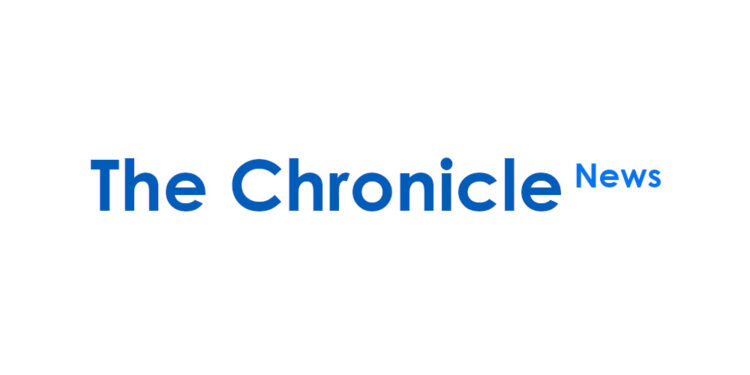The tech industry’s shiny new thing, artificial intelligence, is suddenly an urgent priority in Congress.
Senate Majority Leader Charles Schumer on Wednesday announced “a sprawling congressional effort to set new rules” for AI and catch up to European regulators, The Washington Post reported.
It’s good to see elected officials trying to get ahead of the curve and avoid pitfalls of new technology.
But before going too deep into tomorrow’s tech, perhaps they ought to handle unfinished business with today’s.
Namely, addressing severe harm to the news industry that’s resulted from their laissez faire approach to Big Tech over the last two decades.
Start by passing the Journalism Competition and Preservation Act. It would allow news outlets to collectively negotiate content deals with tech platforms.
This is a straightforward response to the imbalance of power between news publishers and giant tech companies that dominate the digital advertising marketplace.
Other democracies are lapping Congress on this problem, with JCPA-like policies in place to level their playing fields. The latest passed in Canada’s Parliament on Thursday, despite threats and bullying by Google and Facebook.
The JCPA nearly passed last year. An updated version advanced out of a Senate committee June 15 with a 14-7 vote.
This is probably the simplest and most taxpayer friendly of all the recent proposals in Congress to “rein Big Tech.”
JCPA is a market-based approach enabling private companies to resolve their differences, negotiating fair compensation like the digital music industry has for years.
Despite outlandish and contradictory claims by the tech lobby and its allies, JCPA won’t break the internet, stifle conservatives, amplify conservatives or lead to censorship and collusion.
Passing JCPA would, however, prove that Congress can tackle a known problem with mature tech businesses.
If Congress can’t do that, how can it possibly craft regulations preventing harm from a nascent technology that’s not widely understood?
Elected officials don’t have special insight into where AI is heading and how it will be used.
But they do understand the importance of local news. They also have a responsibility, enshrined in the Constitution, to protect America’s independent, free press system.
Call it a natural intelligence system, with some 80,000 print, broadcast and digital journalists gathering and synthesizing information, answering questions and imparting knowledge.
This system is proven to improve decision making by individuals, businesses and government, and increase the performance and effectiveness of democracy.
The JCPA is also a proven approach.
The same companies saying JCPA will be a disaster have already started paying for news. They’ve been making deals to pay the largest news outlets, including The New York Times and Wall Street Journal, for use of their digital content.
Left out, and needing the support of JCPA, are smaller outlets that don’t have resources and heft to negotiate alone with Google and Facebook.
The internet didn’t break when platforms negotiated content deals with small and large papers across Australia, which passed a law similar to JCPA in 2021.
“News outlets are getting compensated and hiring more journalists and Google and Facebook did not go under in the land down under,” Sen. Amy Klobuchar, JCPA’s lead sponsor, said during the June 15 Judiciary Committee meeting.
Nor did the internet break when tech platforms started paying digital music publishers, to compensate for content showing up on their sites.
But allowing tech giants to make billions off news content, while leaving local news outlets to shrivel and die, is causing untold problems for America’s democracy, civic engagement and cohesion.
Congress has repeatedly investigated and documented these harms.
“These trillion-dollar companies scrape local news content and data for their own sites and leverage their market dominance to force local news to accept little to no compensation for their intellectual property,” a 2020 report by Sen. Maria Cantwell found.
A recent poll in Washington state, by the Northwest Progressive Institute, suggests there’s broad support for correcting this via JCPA.
In a survey that explained how publishers want to be compensated, and tech companies say they’re already helping publishers by delivering web traffic, 55% of respondents agreed that “big tech companies like Google and Facebook should be obligated to pay media publishers for news content.”
Just 17% disagreed and 27% were unsure. The survey, of 773 likely voters, has a 3.5% margin of error.
Perhaps that’s being heard in the other Washington, especially as the media industry sees record levels of layoffs this year.
Dean Ridings, CEO of the America’s Newspapers trade group, said members of Congress are supportive but it’s hard to get any bill done nowadays.
“I think the response I’m continuing to see on the Hill has been good,” he said. “If anything there’s an increasing awareness, of the continuing need to support local journalism and that’s on both sides of the aisle.”
That’s good but lawmakers must still overcome doubts and nitpicking that impedes progress and benefits tech giants.
In Congress “there is always something found” to hold up tech bills, Klobuchar said in the committee meeting.
“When we try to stand up for democracy and do something about the news organizations something else is found wrong with that. When we pass bills out of this committee on child privacy and porn, and, as Sen. (Lindsey) Graham knows, trying to do something on Section 230, oops, now there’s something wrong with that, on the left or the right, on the left or the right, it really doesn’t matter what. What is the same? What does all this have in common? It helps the platforms every single time,” she said, punctuating her words by thumping her pen on her desk.
That doesn’t inspire confidence as leadership turns to AI.
Saving America’s independent, local press system deserves as much or more urgency.
This problem is clear, the research is done and a fix is at hand. Pass JCPA and show the public that Congress is up to the challenge of whatever’s coming next.
Brier Dudley on Twitter: @BrierDudley.is editor of The Seattle Times Save the Free Press Initiative. Its weekly newsletter: https://st.news/FreePressNewsletter. Reach him at bdudley@seattletimes.com
Want to reach a local audience and grow your business?
Our website is the perfect platform to connect with engaged readers in your local area.
Whether you're looking for banner ads, sponsored content, or custom promotions, we can tailor a package to meet your needs.
Contact us today to learn more about advertising opportunities!
CONTACT US NOW




